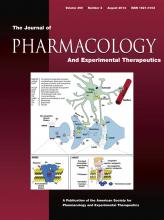Abstract
3,3′-Diindolylmethane (DIM) is a naturally derived indole found in cruciferous vegetables that has great potential as a novel and effective therapeutic agent. In the current study, we investigated the effects of DIM post-treatment on the regulation of activated T cells during the development of experimental autoimmune encephalomyelitis (EAE), a murine model of multiple sclerosis. We demonstrated that the administration of DIM 10 days after EAE induction was effective at ameliorating disease parameters, including inflammation and central nervous system cellular infiltration. MicroRNA (miRNA) microarray analysis revealed an altered miRNA profile in brain infiltrating CD4+ T cells following DIM post-treatment of EAE mice. Additionally, bioinformatics analysis suggested the involvement of DIM-induced miRNAs in pathways and processes that halt cell cycle progression and promote apoptosis. Additional studies confirmed that DIM impacted these cellular processes in activated T cells. Further evidence indicated that DIM treatment significantly upregulated several miRNAs (miR-200c, miR-146a, miR-16, miR-93, and miR-22) in brain CD4+ T cells during EAE while suppressing their associated target genes. Similarly, we found that overexpression of miR-16 in primary CD4+ T cells led to significant downregulation of both mRNA and protein levels of cyclin E1 and B-cell lymphoma-2, which play important roles in regulating cell cycle progression and apoptosis. Collectively, these studies demonstrate that DIM post-treatment leads to the amelioration of EAE development by suppressing T-cell responses through the induction of select miRNAs that control cell cycle progression and mediate apoptosis.
Footnotes
- Received March 31, 2014.
- Accepted June 3, 2014.
This work was funded in part by the National Institutes of Health National Center for Complementary and Alternative Medicine [Grants R01-AT006888 and P01-AT003961]; the National Institutes of Health National Institute of Environmental Health Sciences [Grant R01-ES019313]; the National Institutes of Health National Institute of Mental Health [Grant R01-MH094755]; the National Institutes of Health National Center for Research Resources [Grant P20-RR032684]; and a VA Merit Award [1I01-BX001357]. The funding agencies had no role in experimental design, data collection and analysis, decision to publish, or preparation of the manuscript.
- Copyright © 2014 by The American Society for Pharmacology and Experimental Therapeutics
JPET articles become freely available 12 months after publication, and remain freely available for 5 years.Non-open access articles that fall outside this five year window are available only to institutional subscribers and current ASPET members, or through the article purchase feature at the bottom of the page.
|






